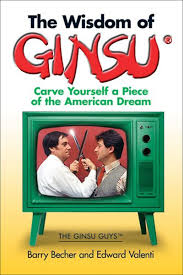
For Mother’s Day, we posted a study about maternal-fetal stress causing telomere attrition
Now, here’s an article linking stress to telomere damage in older men:
http://medicalxpress.com/news/2014-03-older-men-short-telomeres-chronic.html
And we have similar studies on children, adolescents, and mothers of disabled kids. In fact, many years and many millions of dollars will be invested in the next decades to prove the obvious: that all cells need to copy, that telomere DNA shortens when they do, that “stress” and a bunch of other things can adversely affect their repair… and yet somehow they always conclude that further study is needed.
Currently, 16,000 studies linking telomere dysfunction to nearly every disease that exists. Why do we need these? Read my ridiculously simple theory about aging. I believe there may be only one disease and that it is worth studying therapies that actually might DO something to slow or reverse telomere damage, like TA-65 for example. See ProBonoTrials.org for more info (under construction).
This endless, incremental, reiterative, and staid method of advancing knowledge is challenged by what I call the “Ginsu Principle”. You could sell many distinct knives for cutting bread, aluminum cans, tomatoes and wood. And you can have different theories for how these knives cut those substances. Or you could just accept that a knife can cut a lot of things because it’s sharp. Our research into telomere biology violates the Ginsu Principle in a big way.
Of course, the original Ginsu Principle was called Occam’s Razor and it states that if one explanation will suffice, don’t evoke many different ones.
GINSU principle





1 thought on “Ginsu knives can teach us something about the next 100 million dollars of telomere ‘research’”
Occam’s razor offers a partial solution to the so-called “problem of induction.” This is the problem of how, in logic, one can generalize from specific instances. A complete solution to the same problem was developed by the theoretical physicist Ronald Christensen circa 1970. Thereafter, it was applied to numerous lines of scientific research by administrators who included me. An overview and bibliography are available at http://www.knowledgetothemax.com.
Under Christensen’s solution, the induced generalization incorporates all of the available information but no more than this information. Occam’s razor is an approximation that applies in the limit that information about the outcomes of events is perfect. In this limit, a cause and effect relation exists such as “knife cuts flesh.”
The availability of a solution to the problem of induction is of great potential usefulness to the planning and management of a line of scientific studies. Usually, perfect information about the outcomes of events is neither possible nor needed so the wise research administrator shuts off a study when it has produced sufficient information for practical decision making and applies the available funding to studies that will be more productive of usable results. Thus, for example, a wise administrator for the NIH might conclude there was sufficient information suggestive of a cause and effect between telomere erosion and disease to divert funding to clinical trials of telomerase activators. Unfortunately for the potential victims of telomere erosion induced disease, research administrators aren’t necessarily wise. Political pressure might be effective.